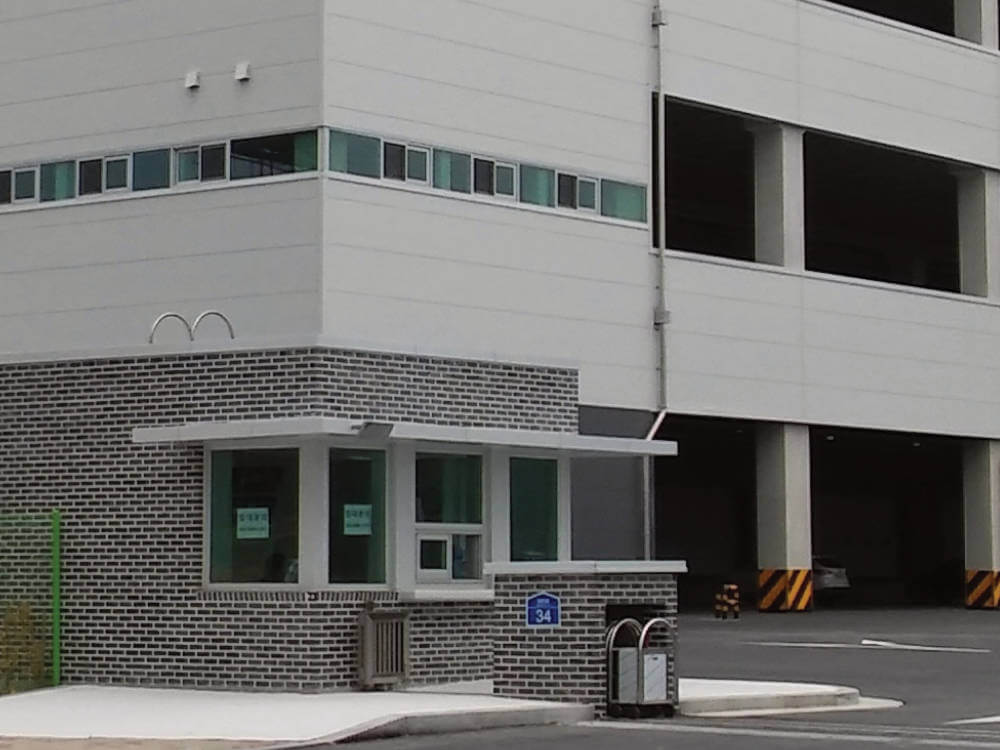Demand for large, high quality warehousing and logistics space across Asia is increasing, driven by a confluence of major trends. Demographic shifts, such as the rising urbanisation of populations and increasing disposable incomes, rapid growth in online retailing and a lack of modern premises, combined with a quest for yield among local and international investors are creating a compelling investment opportunity. Korea is no exception to this, as the country’s historically strong export-led economy increasingly encompasses rising domestic demand for products. Against this backdrop, the Actis Asia real estate team developed two A-grade four-storey modern logistics buildings in a prime site on the edge of western Seoul, next to Incheon International Airport, partnering with local retail and logistics experts to deliver a highly attractive new hub for e-commerce businesses.
The opportunity
Throughout Asia, digital disruption is creating new e-commerce champions as online retail volume has grown tenfold over the ten years to 2020. This is creating strong demand for new, high quality logistics and warehousing space, with the requirement for this type of real estate in Asia expected to double by 2022. At the same time, institutional investors are increasingly seeking to invest in real estate in the region, yet are faced with a dearth of attractive, modern stock.
These trends are apparent in Korea, where trade volume reached its highest ever level in 2018, at over US$1.14trn, while domestic demand for goods continues to rise. With the need for logistics centres growing, the Standard Chartered Principal Finance Real Estate team, which transferred to Actis in 2018, capitalised on the opportunity, acquiring land in a well-connected location in 2016. Formerly barren, reclaimed land, the site was adjacent to the Incheon International Airport Expressway in western Seoul, offering easy access to the airport, Incheon Port and to greater Seoul.
What did we do?
Working with trusted, experienced partners is key to ensuring efcient delivery of high quality developments that meet local market needs. Through their networks, our local team engaged two leading players to assist with the design and build of the new logistics site. GS Retail, a major local convenience store operator with a demonstrably strong asset management and project management track record; and ICB, a local e-commerce business with C2C retail operations throughout China and Korea. Our team invested the majority of the equity capital, with our partners investing for a minority share in the project with the arrangement structured to ensure strong alignment of interest.
Following a “build to core” strategy of developing assets with a dual focus on occupier demand and investor appetite for the institutional quality cash fows these types of property can generate, the sites were developed to meet the specifc needs of e-commerce and retailers, ofering afordable, modern, fexible space in a highly convenient location.
The 85,602 m sq Incheon development is larger than other comparable spaces, making it highly attractive to e-commerce businesses, seeking to consolidate their logistics centres into fewer, larger sites. The size and location also appeal to the growing number of third-party logistics companies that are emerging to capitalise on the growing trend for companies to outsource their logistics to specialist operators.
Working with a top tier construction frm ensured the two A-grade, four storey logistics buildings were completed to a high specifcation, within just 10 months. The development includes features not seen in other warehousing and logistics spaces in the Korean market, such as ramps enabling trucks to access all foors and foors completed to a consistent fatness to enable vehicles such as fork lift trucks to operate efectively. Despite these marketleading characteristics, rental rates at the logistics park remain afordable and lower than many other comparable sites.
The development at Incheon Terminal Logistics Complex has improved employment prospects and community services for local residents, as it has brought previously barren, reclaimed land into economic use. It ofers new employment opportunities for between 200 and 300 people, many of whom will live in the vicinity. As a major part of a new logistics hub, the SkyBox buildings are helping to attract further development in the local area, creating more new jobs, with a new mall scheduled to open in 2022 and improvements to nearby recreational land underway.
The exit
Skybox’s highly attractive features built to meet the needs of e-commerce businesses led to strong demand for space on the site. Within 18 months, the buildings were 90% occupied by leading Chinese and Korean e-commerce retailers. The quality of the development and its highly sought-after location, combined with the strong demand from tenants, led to strong competition to buy the assets, in April 2019, we sold Skybox to a large institutional investor, achieving a strong return for our investors.
Project Jack was originated and managed by the Standard Chartered Principal Finance Real Estate team, until it transferred to Actis in 2018, following our acquisition of the business and its portfolio. The acquisition brings Actis and strong team with a good track record and strong assets in the portfolio, evidenced by rigorous due diligence. The transfer of the team and assets significantly strengthens Actis’ capability and capacity in the Asian real estate market.
